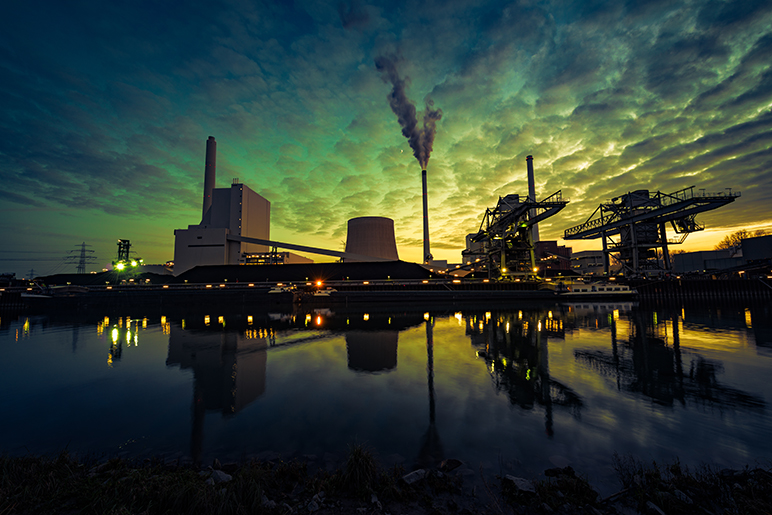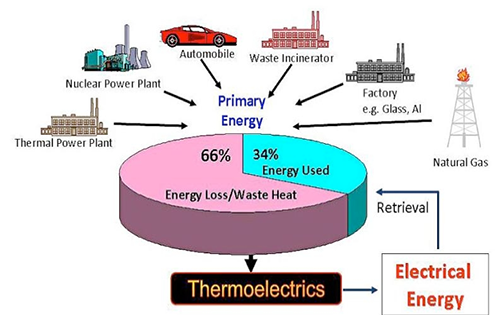
A research group in the Department of Industrial and Systems Engineering at Texas A&M University led by Dr. Shiren Wang, is working to find efficient solutions to reusing and repurposing wasted heat energy.
Industrial processes consume fuel to implement the desired operations. Unfortunately, more than half of the energy produced is lost through waste heat. Thermoelectric technologies recycle waste heat by using it to create electricity. For example, thermoelectric products can be integrated into cellphones for increasing battery life or vehicle engines for improving fuel efficiency (see Figure 1).
 Thermoelectric products are made from special materials that absorb heat and create electricity. These products often need to have complex geometries that fit in tightly constrained spaces, which makes 3D printing the ideal manufacturing technique. Unfortunately, printable materials that demonstrate flexibility and high thermoelectric performance are in short supply.
Thermoelectric products are made from special materials that absorb heat and create electricity. These products often need to have complex geometries that fit in tightly constrained spaces, which makes 3D printing the ideal manufacturing technique. Unfortunately, printable materials that demonstrate flexibility and high thermoelectric performance are in short supply.
Wang’s research group has invented a new hybrid nanostructure that can serve as ink for scalable printing, with good mechanical flexibility and outstanding thermoelectric properties. The efficiency of recycling water heat is around 1.2 percent for a thermal gradient of 60 oC, and 6 percent for a thermal gradient of 260 oC. For example, in an iPhone X, printing of Wang’s thermoelectric materials onto the battery could extend the battery lifetime 5-10 minutes. If integrated within vehicle engines, the fuel efficiency can be improved by 6 percent in freeway driving. That means every gallon of fuel can run one-two more miles.
Dr. Mark Lawley, head of the industrial and systems engineering department, said Wang’s remarkable achievement is the culmination of years of difficult research.
“His work has the potential to save our economy billions of dollars in energy consumption while reducing society’s impact on the global environment,” Lawley said. “Congratulations to Dr. Wang for this outstanding work.”
Wang’s research has been selected for publication in the prestigious journal, Energy & Environmental Science of the Royal Society of Chemistry. Energy & Environmental Science is an international journal that publishes important, high-quality and agenda-setting research relating to energy conversion and storage, alternative fuel technologies and environmental science with an impact factor of 29.5.